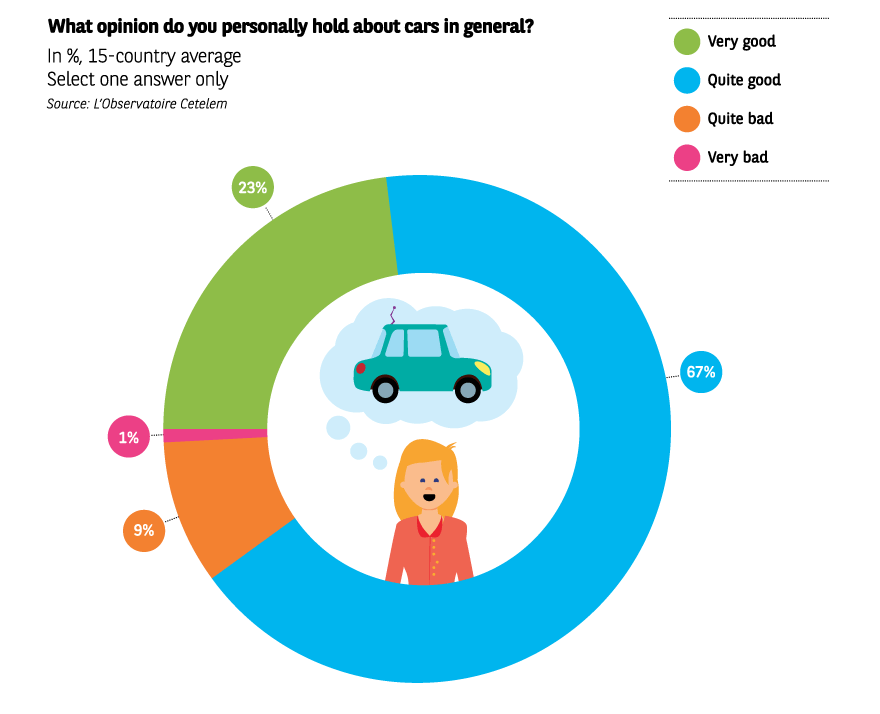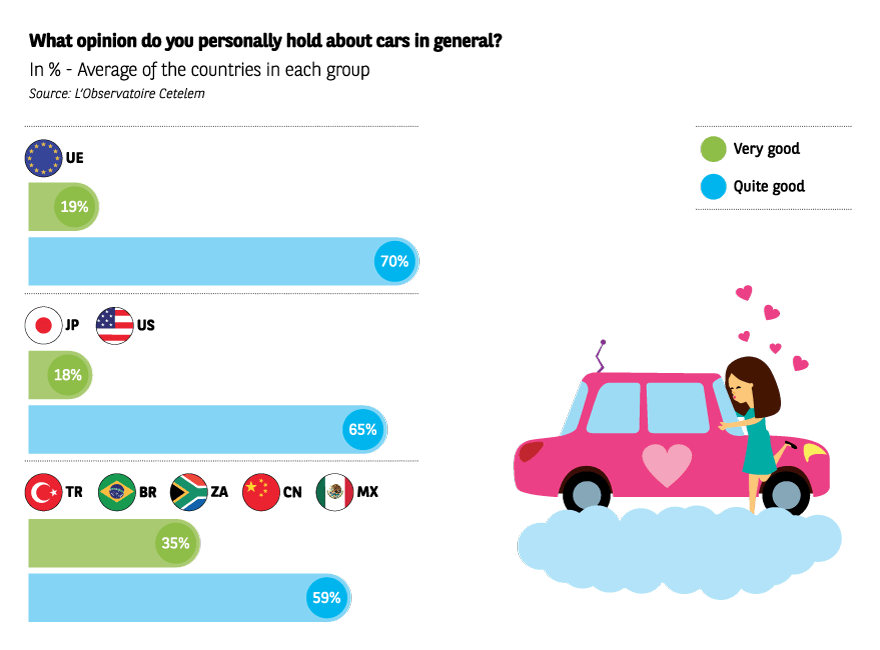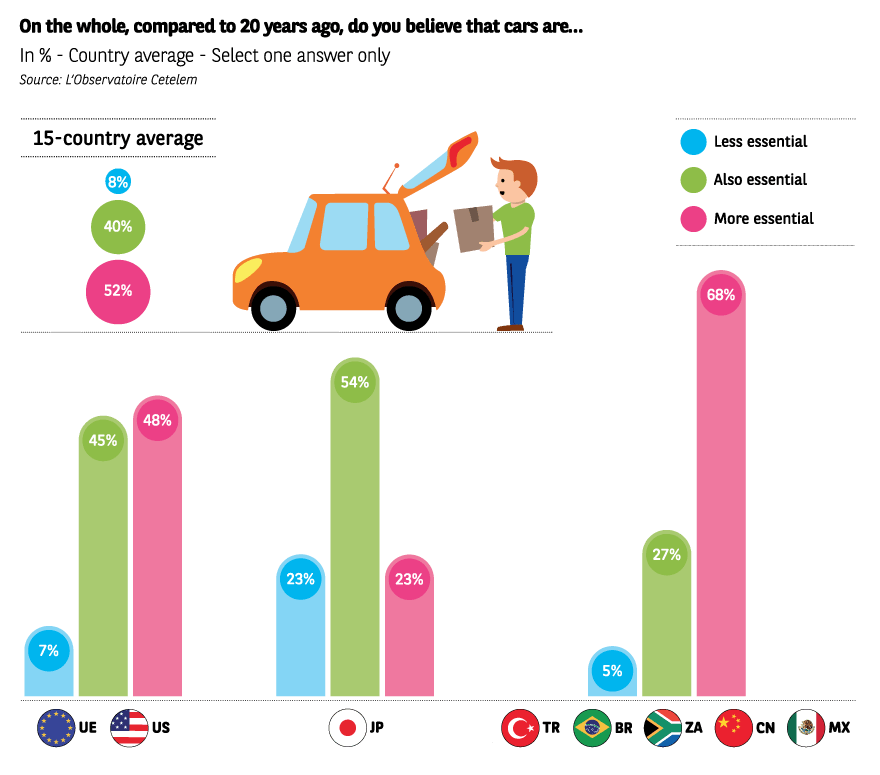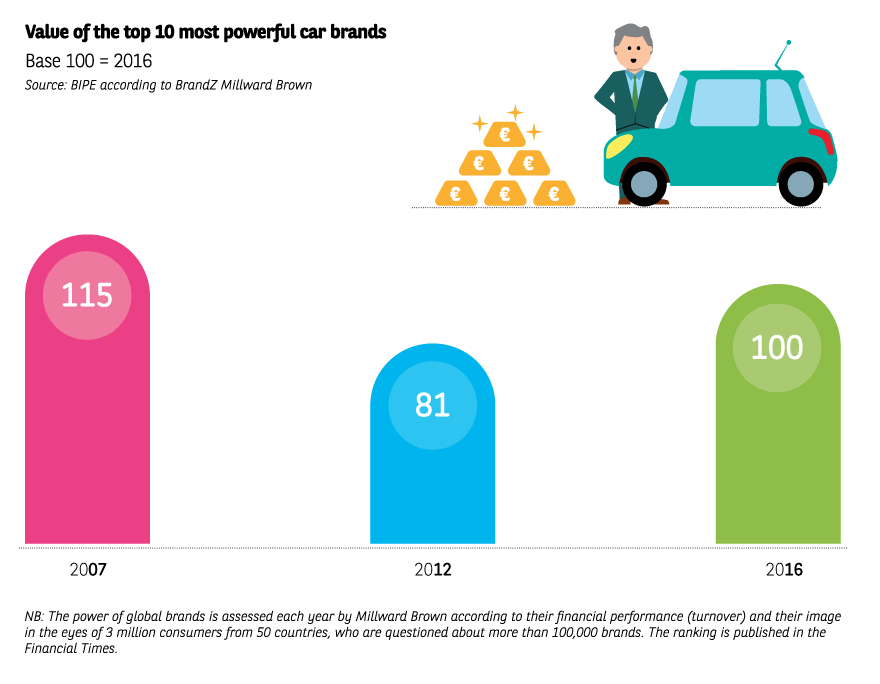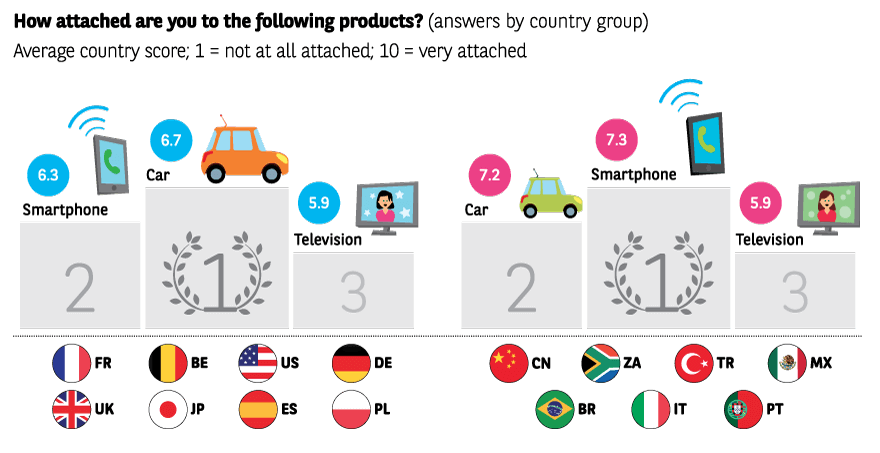More popular than ever
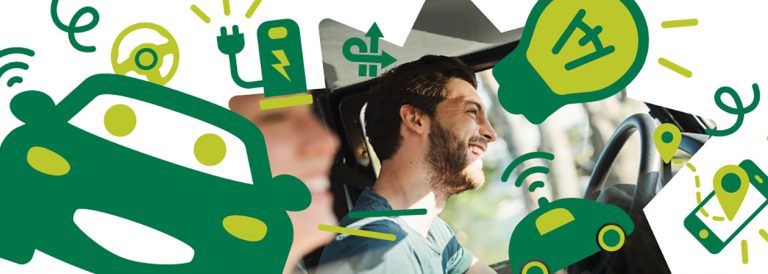

A frank and overwhelming «yes»
The opinion of nine out of ten motorists is positive and the figure is even higher in the emerging countries. Almost a quarter even hold a «very positive» opinion of cars. The French fall into line with this underlying trend, with 85.9% answering positively. In addition, contrary to the rhetoric emanating from the media and the mouths of politicians, 84.3% believe that the car enjoys a positive image in the eyes of society. Mirroring the results of L’Observatoire Cetelem 2011, young people reiterate their fondness for cars in this latest edition.
It is worth noting that, in line with the findings of previous surveys conducted on household morale, individual opinions are more positive than the overall perception.
Unfounded criticism
31% of those surveyed consider that the media and politicians generally express themselves in negative terms when it comes to cars. The figure reaches 57% in Belgium and 48% in France. Then come Germany (44%), the United Kingdom (44 %) and the United States (42 %). In other countries, the score varies between 20 and 30%, with the exception of China (8%). Meanwhile, only 14% believe that this negative treatment in the press is justified. Belgium is the outlier once again, with 30% of those surveyed voicing the opinion that the criticism is justified.
Essential
Not only does this individual enthusiasm for cars seem almost universal, their current popularity appears to be stronger than ever before. With vehicle ownership rates rising rapidly in the emerging countries, it is no surprise that the vast majority of their consumers believe cars to be at least as important (95%), if not more important (68%), than 20 years ago. What is surprising, however, is that 49% and 43% of those surveyed in Europe and the United States, respectively, are of the same opinion.
Meanwhile, almost a quarter of Japanese respondents believe cars to be less of a necessity than 20 years ago. Once again, Japan, a country with a high population density and a public transport network of renowned quality, stands apart from the other nations. The result follows the structural trend that has seen car sales fall in the country over the last two decades.
Generally speaking, car dependence is obviously much higher in less densely populated areas, where alternative forms of transport are usually a great deal scarcer. Indeed, cars tend to be considered vital in these areas, where many inhabitants rely on them for social and professional reasons.
Consumer Testimonies
« My car is essential. I don’t know what I would do without a car. I’m very attached to mine. »
Ever more recognisable brands
Another indicator highlights the car’s wide recognition and the place it holds in the hearts of motorists. In 2016, the economic value of the most powerful car brands, as assessed by the Millward Brown BrandZ ranking, which is based on financial performance and image among consumers worldwide, was 23% higher than the low point reached in 2012.
The predominance of cars
This recognition is also rooted in the real world. When up against mobile phones and televisions, cars more than hold their own. In developed countries, they obtain by far the highest score: 6.7 vs. 6.3 for mobiles and 5.9 for televisions. In emerging countries, the mobile phone is the narrow winner.
On average, men are more attached to their car than their mobile, while for women the two are neck and neck. However, cars face a strong challenge from mobiles among the younger generations, to whom a vehicle is financially less accessible and alternative forms of transport are more attractive. But it is easy to imagine that their fondness for cars will rise as they grow older, start a family and have children.
A friend who wants the best for you, but cares little about status
So what is it that motorists find so appealing? How do they explain their fondness for their car?
First and foremost, they see it as a symbol of freedom. 90.7% of the people surveyed put this point forward. In a globalised world, where travel has never been easier or faster, cars remain a prominent symbol of independence and free choice. The pioneering spirit is stronger than ever in what is not so much a product, but an iconic object that is perfectly in tune with the desires of human beings.
Just as many respondents (90.7% of those surveyed), deem cars to be essential from a practical perspective. All agree that it is a vital form of transport. Such an unequivocal result implies that, regardless of country or living environment – simply put, urban or rural – cars remain essential, such is their variety of uses (leisure, work, shopping, etc.).
Time savings are the 3rd most important quality people see in cars (88.1%). Unlike the various forms of public transport on offer, trains and planes included, cars are available right away and effective immediately. It seems to matter little that travelling by bus or bicycle is often a quicker way of getting from A to B in urban areas.
It should be noted, nonetheless, that this empathy/sympathy for cars does not affect the critical faculties and clear-headedness of motorists. 92.3% find them expensive. A feeling that is shared by all.
It is important to point out that cars are no longer synonymous with social standing, except in rapidly developing countries. Once more, this survey demonstrates that the car’s role as a status symbol is no more than a distant memory, a part of the growing-up process for a product that has today reached full maturity.
Consumer testimonies
« Freedom means being able to go away for the weekend on a whim, without knowing which route I’m going to take. »
« My car gives me a certain amount of freedom, which contributes to my feeling of well being. I can always count on it. »

